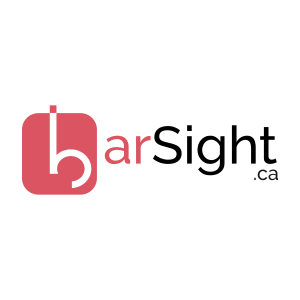
Weekly Brewery Cleaning Tasks
Created by Gorman & Smith Beverage Equipment
Free Template
This template is free to download, view, and can be instantly imported onto your BarSight account. Once you click the import button, you will be redirected to the manage training module page, where you can view and edit this training module to suit your needs.
About Gorman & Smith Beverage Equipment
Gorman & Smith provides breweries, wineries, and distilleries with reliable equipment and supplies to keep things running smoothly. With close to a decade of experience in the craft beer industry, Gorman & Smith can help in both the initial setup and day to day issues for brewers.
Weekly Brewery Cleaning Tasks Template
Weekly Brewery Cleaning Tasks
These tasks are only provided to be general in nature, and you should always read and follow the specific manufacturer's directions for the equipment that you have in your brewery.
This module contains items that should be done weekly, as well as items that are done typically once a month on a rotating schedule, week by week.
Dust Malt & Milling Areas
Remove any grain dust that has accumulated in the malt & milling areas of the brewery, using a broom and a dustpan.
Clean-In-Place (CIP) Brewhouse
Follow the manufacturer's directions for your specific equipment, on how to hook up and run the CIP system in your brewery. If no manual is available, contact your equipment sales representative for a walkthrough.
Check Compressor Oil
Verify the compressor oil level is halfway up on the sight glass of the compressor pump. If the oil level is too low or high, it can cause damage to the pump. If the pump does not have a sight glass and you need to remove a dipstick, or you need to fill up the pump with oil, make sure to disconnect the power to the pump before proceeding.
Check Lubricants
Disconnect the power and check hydraulic oil levels, and motor oil levels to any mechanical components inside the brewery. Apply food-safe grease to bearings as needed and ensure all valves operate smoothly.
Check Compressed Gasses
Verify all compressed gas cylinders are stored correctly and supply lines are leak free. All gas cylinders should be labeled and stored securely. If a gas cylinder is not in use, ensure the valve is turned off and the cap is in place.
Foam Clean Brewhouse & Cellar
Use a foam gun and a foaming cleaning solution to clean and rinse off the brewhouse and cellar areas of the brewery.
Clean Floors
Wash and rinse the brewery floors, using a floor squeegee to push water into the floor drains.
Do Special Monthly Task
* Refer to the following Monthly Tasks List to determine the specific tasks to accomplish this week *
Monthly Brewery Cleaning Tasks
These tasks are to be done once a month as you are performing your weekly brewery cleaning
Week 1
Tighten Loose Fittings
Make sure all fittings, valves, nuts, and bolts are tight. This includes guardrails, covers, hatches, latches, etc.
Check Safety Equipment
-
Ensure all chemicals are stored and labeled correctly.
-
SDS sheets are available for all chemicals used in brewery
-
Fire extinguishers are full, secured properly, and not expired
-
Fire exits are not blocked
-
First-Aid station is fully stocked and equipped, and clear of any clutter
-
PPE (Gloves, eyewear, aprons) is stored correctly, clean, and not damaged
Week 2
Clean Glycol Cooling Coils
Blow compressed air through the grill of the glycol power pack cooling fins to remove any dust and dirt buildup.
Defrost Fridges & Clean Draft Lines
Ensure fridge drain lines are connected and clear of obstructions, and run a manual defrost cycle.
Run a cleaning solution through the draft beer lines, and clean couplers and taps. Rinse with at least 2 liters of water at each tap before reconnecting kegs.
Flush, Sanitize, and Replace Filters on Air Lines
Wort and beer can creep up into oxygen and carbon dioxide lines from use. Check valves help reduce the chances of cross-contamination, but the hosing should be inspected for residual fluids often. Flush the lines with warm water using a detergent if necessary, sanitize with an acid-based solution, run gas to push out any moisture, and then replace any filters as moisture can reduce their effectiveness.
Week 3
Check Boiler Chemicals
Ensure all chemicals for the boiler are filled and stored away securely. Check for leaks around the boiler and any other abnormalities. Check inhibitor and water softener salt inventories and reorder if necessary.
Clean Floor Drains
Remove any debris that may have built up on/around the floor drain. Pour a diluted cleaning mixture down each drain, letting it sit for a few minutes. Followed by a fresh water rinse.
Remove any debris from the drains. Lift up the slot drain covers. Spray with a dilute cleaning mixture and scrub with a dedicated drain brush. Rinse with fresh water and replace drain covers.
Week 4
Inspect Handling Equipment
Verify there are no obvious defects with your materials handling equipment, make sure to inspect the wheels and check batteries for the following:
-
Dolly
-
Pallet Jacks
-
Forklift
Defrost Fridges & Clean Draft Lines
Ensure fridge drain lines are connected and clear of obstructions, and run a manual defrost cycle.
Run a cleaning solution through the draft beer lines, and clean couplers and taps. Rinse with at least 2 liters of water at each tap before reconnecting kegs.
More Training Templates

Dress Code
Need a dress code policy for your restaurant? This dress code template can be downloaded into your account and used a starting point to inform your employees on how to dress in a professional and con...


